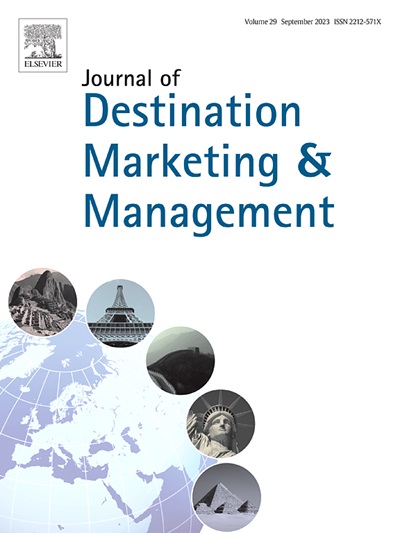Rethinking perceived destination aesthetic quality: Formative measurement development and validation in the rural tourism context
IF 7.4
2区 管理学
Q1 HOSPITALITY, LEISURE, SPORT & TOURISM
引用次数: 0
Abstract
Destination aesthetics are crucial in attracting and retaining tourists and have received considerable scholarly attention. Previous studies have overlooked the nature of the measurement of destination aesthetics by indiscriminately treating it as a unidimensional or reflective construct per conventional practice. To address this gap, this study develops a multidimensional measurement of Perceived Destination Aesthetic Quality (PDAQ), conceptualizing it as a formative construct. Through rigorous inquiry, a reflective-formative measurement consisting of 18 items and five dimensions—multi-sensory beauty, sublime, harmony, diversity, and cleanliness—is identified. The study tests this measurement within the underexplored rural tourism context and confirms its nomological validity through place attachment theory. The results reveal that perceived destination aesthetic quality significantly enhances place attachment, which mediates its effect on tourists’ post-visit behavioral intentions. These findings contribute to the theoretical understanding of tourism aesthetics by reconceptualizing its measurement as a formative construct and advancing knowledge of the destination aesthetic qualities, particularly in rural tourism contexts. Additionally, the study provides new insights into the broader effects of destination aesthetics on individual emotional and behavioral outcomes in rural tourism. The practical implications include actionable strategies for stakeholders to design and manage rural tourism destinations with enhanced aesthetic appeal.
对感知目的地审美品质的再思考:乡村旅游语境下形成性测量、发展与验证
目的地美学在吸引和留住游客方面至关重要,并受到了相当多的学术关注。以往的研究忽视了目的地美学测量的本质,不加区分地将其视为传统实践中的单向度或反思性结构。为了解决这一差距,本研究开发了感知目的地审美质量(PDAQ)的多维测量,将其概念化为形成性结构。通过严格的调查,确定了由18个项目和5个维度组成的反思性形成性测量-多感官美,崇高,和谐,多样性和清洁。本研究在未被充分开发的乡村旅游背景下对这一测量进行了检验,并通过地方依恋理论证实了其法理学上的有效性。结果表明,目的地审美品质感知显著增强了地方依恋,并通过中介作用影响游客的游后行为意向。这些发现有助于从理论上理解旅游美学,将其测量重新定义为一种形成性结构,并推进对目的地审美品质的认识,特别是在乡村旅游背景下。此外,该研究还为目的地美学对乡村旅游中个人情感和行为结果的更广泛影响提供了新的见解。实际意义包括为利益相关者设计和管理更具美学吸引力的乡村旅游目的地提供可操作的策略。
本文章由计算机程序翻译,如有差异,请以英文原文为准。
求助全文
约1分钟内获得全文
求助全文
来源期刊
CiteScore
18.60
自引率
3.60%
发文量
46
审稿时长
43 days
期刊介绍:
The Journal of Destination Marketing & Management (JDMM) is an international journal that focuses on the study of tourist destinations, specifically their marketing and management. It aims to provide a critical understanding of all aspects of destination marketing and management, considering their unique contexts in terms of policy, planning, economics, geography, and history. The journal seeks to develop a strong theoretical foundation in this field by incorporating knowledge from various disciplinary approaches. Additionally, JDMM aims to promote critical thinking and innovation in destination marketing and management, expand the boundaries of knowledge, and serve as a platform for international idea exchange.

 求助内容:
求助内容: 应助结果提醒方式:
应助结果提醒方式:


